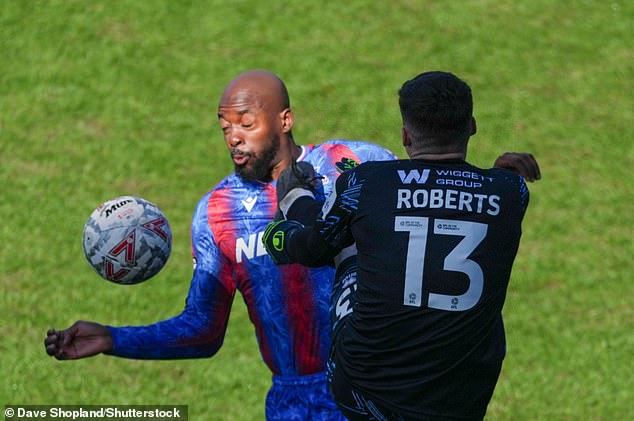Incidence of the Ban
Last weekend’s FA Cup tie between Millwall and Crystal Palace was marred by a shocking incident that has now resulted in severe consequences for Millwall goalkeeper Liam Roberts. During the match, Roberts was sent off after he delivered a reckless kick to Crystal Palace forward Jean-Philippe Mateta’s head, an action that was widely condemned both on and off the pitch. The Football Association (FA) swiftly reviewed the incident and has imposed a six-match ban on Roberts, underscoring the seriousness of his transgression. This decision not only reflects the FA’s commitment to upholding high standards of sportsmanship but also serves as a stark reminder of the potential repercussions for any player who acts violently or with intentional harm.
The Incident in Detail
The moment that will now haunt Liam Roberts occurred in the tense atmosphere of a competitive FA Cup tie. In a split-second decision, Roberts, who was under pressure from Mateta, lost control and lashed out, connecting with Mateta’s head with a forceful kick. The severity of the action was immediately apparent, and the match officials had no choice but to show Roberts a red card. Video footage of the incident circulated quickly, sparking outrage among fans, players, and commentators alike. The FA’s decision to impose a six-match ban was preceded by a thorough investigation, including statements from match officials and both clubs. The consensus was clear: Roberts’ actions were far beyond the boundaries of acceptable conduct, and a significant penalty was warranted.
Reactions from the Football Community
The football community has been unequivocal in its condemnation of Liam Roberts’ behavior. Crystal Palace manager Patrick Vieira expressed his disappointment and concern for Mateta’s well-being, while Millwall manager Gary Rowett acknowledged the need for Roberts to face the consequences of his actions. Many players, including former goalkeepers, have echoed similar sentiments, emphasizing that such behavior has no place in the sport. The incident has also reignited debates about player safety and the need for stricter penalties to deter violent conduct. The incident serves as a powerful example of the zero-tolerance approach that football authorities are taking to ensure that the game remains fair and safe for all participants.
Personal Impact on Liam Roberts
For Liam Roberts, the six-match ban is a significant setback in his career. As a young goalkeeper, he has been making strides in recent seasons, earning a reputation for his skill and potential. This incident, however, will undoubtedly leave a stain on his record and could impact his future opportunities. Roberts has issued a public apology, expressing his remorse for the incident and his understanding of the severity of his actions. He has also committed to working with the club and the authorities to ensure that such a transgression does not happen again. The psychological and professional ramifications of the ban are substantial, and Roberts will need to demonstrate maturity and dedication to regain the trust of his team and the wider football community.
Club and Player Support
Millwall Football Club has been steadfast in its support for Liam Roberts throughout this ordeal. The club has emphasized the importance of player development and has offered Roberts counseling and guidance to help him navigate this challenging period. Senior players and staff have rallied around him, reinforcing the message that everyone makes mistakes and the key is to learn from them. Crystal Palace, on the other hand, has focused on the well-being of Jean-Philippe Mateta, who thankfully did not suffer any serious injuries. Both clubs have taken steps to ensure that their players understand the importance of maintaining discipline and respect on the pitch, while also highlighting the support structures in place for players dealing with disciplinary issues.
Broader Implications for Football
This incident and the subsequent ban highlight the broader challenges facing football, particularly in terms of player behavior and the need for stricter enforcement of rules. The FA’s decision sends a strong message that violent conduct will not be tolerated, regardless of the circumstances. It also underscores the importance of player education and the role of clubs in fostering a culture of respect and fair play. As the sport continues to evolve and gain a global audience, incidents like these serve as a reminder that the integrity and safety of the game must be paramount. The hope is that this harsh penalty will deter other players from engaging in similar behavior and contribute to a more positive and respectful environment on the pitch.











